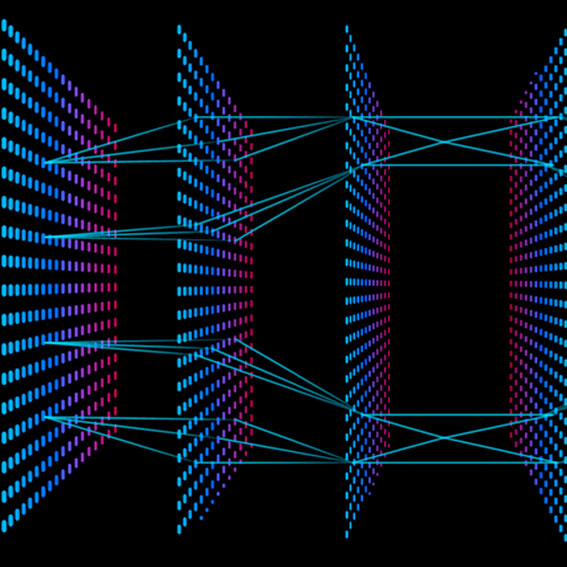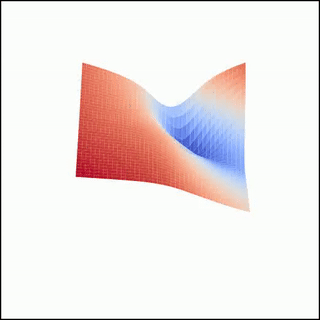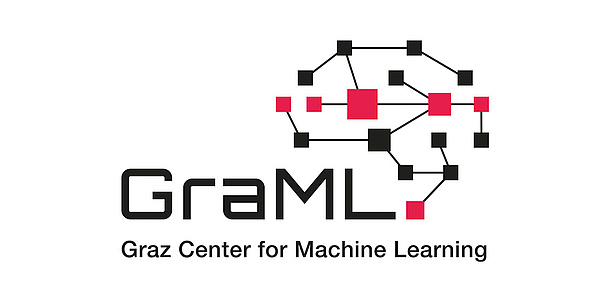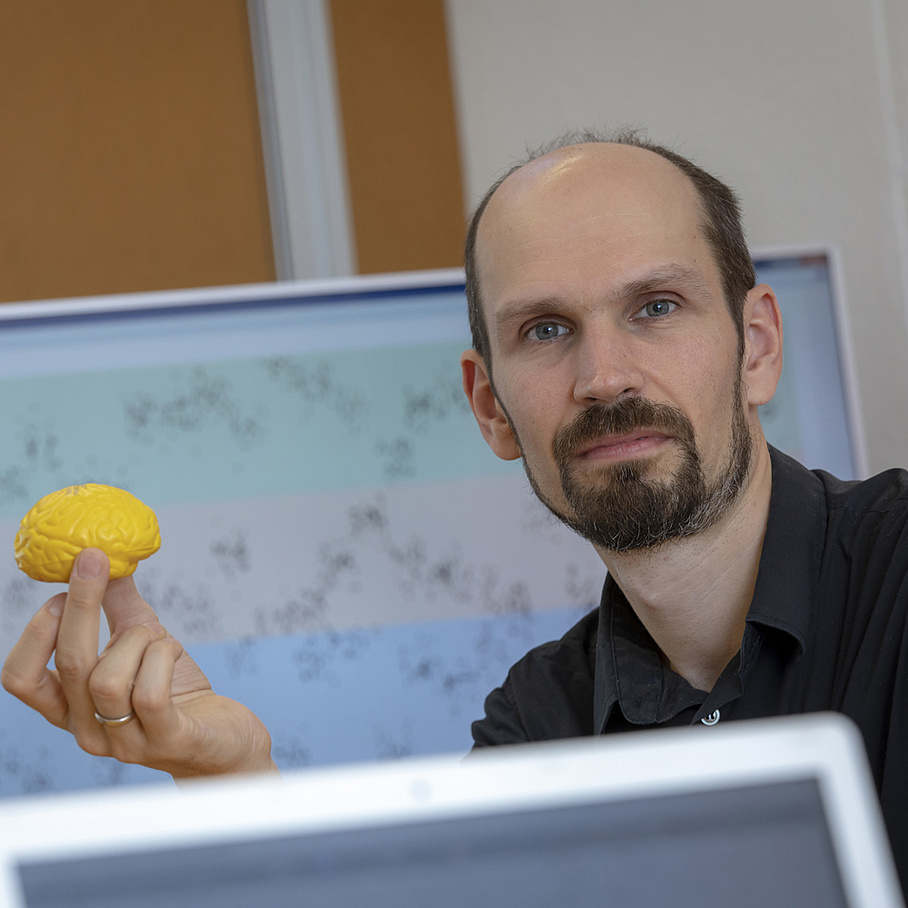


Research agenda
In the Graz Center for Machine Learning (GraML), researchers at TU Graz work on machine learning topics in interdisciplinary ways, with each person contributing unique scientific perspectives from their daily research areas.
The scientific work is divided into six Core Research Areas (CRAs), which are primarily dedicated to the foundations of machine learning, and several flexible modules (Interdisciplinary Research Topics, IRTs).
Contact
Robert LEGENSTEIN
Head of Graz Center for Machine Learning
GraML@tugraz.at
Center board
- Horst BISCHOF
- Roderick BLOEM
- Martin FELLENDORF
- Gerald STEINBAUER-WAGNER
- Siegfried HÖRMANN
- Roman KERN
- Bettina KLINZ
- Robert KOURIST
- Robert LEGENSTEIN
- Kerstin LENK
- Elisabeth LEX
- Stefanie LINDSTAEDT
- Robert PEHARZ
- Franz PERNKOPF
- Thomas POCK
- Sascha RANFTL
- Olga SAUKH
- Johannes SCHOLZ
- Wolfgang VON DER LINDEN
- Siegfried VÖSSNER
Research Network
- Institute of Applied Information Processing and Communications
- Institute of Computer Graphics and Vision
- Institute of Discrete Mathematics
- Institute of Electricity Economics and Energy Innovation
- Institute of Engineering and Business Informatics
- Institute of Geodesy
- Institute of Geometry
- Institute of Highway Engineering and Transport Planning
- Institute of Interactive Systems and Data Science
- Institute of Mechanics
- Institute of Molecular Biotechnology
- Institute of Neural Engineering
- Institute of Rock Mechanics and Tunnelling
- Institute of Signal Processing and Speech Communication
- Institute of Software Technology
- Institute of Statistics
- Institute of Technical Informatics
- Institute of Theoretical and Computational Physics
- Institute of Theoretical Computer Science
- Institute of Thermodynamics and Sustainable Propulsion Systems
- Know-Center GmbH
- Space Research Institute
Core Research Areas (CRAs)
The Core Research Areas at the Graz Center for Machine Learning create the stable research framework of the Research Center. This framework enables researchers to tackle fundamental issues and to develop methods in the field of machine learning.
CRA 1: Visual Intelligence
Machine vision, machine learning and especially deep neural networks are closely related fields of research. The availability of huge datasets, more efficient optimization algorithms and the giant increases in computing power have led to enormous progress in these fields. However, learning algorithms still depend on the datasets they are based on. For this reason, slight changes in the data – such as a new camera angle or changing weather conditions – can quickly overwhelm these algorithms.
The research interests assigned to the Core Research Area 1 Visual Intelligence are those related to creating robust, flexible and adaptive systems for the machine vision field.
CRA 2: Optimiziation in Machine Learning
Optimization algorithms play central roles in machine learning and inference from models. Therefore, optimization is the central research interest in the Core Research Area 2 Optimization in Machine Learning.
The work is carried out at the interface between optimization and learning. In this way, rules can be learned from datasets, and complex subroutines can be replaced by learning algorithms. In addition, the researchers are developing even more combinatorial optimization algorithms that will be able to be used as black-box solvers in neural networks.
CRA 3: Ressource-efficient and brain-inspired Machine Learning
In recent years, the amount of available data has increased tremendously. And, as the amount of data has increased, the need for efficient, intelligent systems that can extract complex relationships from this data has also increased. The current systems, however, are highly resource-intensive. Core Research Area 3 Resource-efficient and Brain-inspired Machine Learning has thus been established to develop resource-efficient machine learning methods.
Artificial intelligent systems are greatly inferior to biological intelligence in terms of their generalization abilities, speed and, above all, energy efficiency. The human brain possesses an enormous computing power, which it can exert with a comparatively negligible energy budget. Researchers in CRA 3 want to take the human brain as a model and develop efficient, biologically inspired systems.
CRA 4: Probabilistic Methods and Causal Models
Probability is a central concept in machine learning and artificial intelligence. Probabilistic machine learning not only incorporates probability; it places it at centre stage. Researchers at the Core Research Area 4 Probabilistic Methods and Causal Models explore consistent inference processes based on known principles, which naturally account for and incorporate uncertainty, missing data and outliers. These researchers are searching for ways to balance the flexibility and modelling power of Deep Learning with rigorous probabilistic interference. They are also exploring methods that can be used to calculate intervention effects and answer counterfactual questions by modelling causal relationships.
CRA 5: Recommender Systems and Behavioural Analytics
The Internet is playing an increasingly ‘advisory’ role in our lives; for example, by providing support when we make purchase decisions or visit restaurants. Researchers are now using the behavioural data generated in this way to model people’s preferences and future behaviour and thus improve product recommendations online. The research goal of the Core Research Area 5 Recommender Systems and Behavioural Analytics is to develop novel, psychologically informed recommendation systems that are both transparent and explainable. At the same time, the researchers are investigating potentially harmful biases that can arise as a result of using these new recommender systems.
CRA 6: Domain Specialized Machine Learning and Trust
In the next few years, the increasing specialization of the machine learning and data science fields will lead to an increasing involvement of domains and domain knowledge. The Core Research Area 6 Domain Specialized Machine Learning and Trust has been established to provide context-aware knowledge services that combine powerful machine learning methods with semantic technologies and domain-specific knowledge. The aim is to support individual, collaborative and organized learning. Other research topics include Trust by Design and the certification of machine learning systems.
Interdisciplinary Research Topics (IRTs)
The Interdisciplinary Research Topics are thematically narrow and adaptable research modules that, among other things, support the Core Research Areas with self-contained, completed projects. The IRTs are interdisciplinary, and researchers from at least two TU Graz faculties work jointly on them.
Interdisciplinary Research Topics
- IRT Machine Learning in Computational Chemistry and Protein Engineering
- IRT Machine Learning Enhanced Optimization and Constraint Solving
- IRT Stochastic and Topological Models
- IRT Physics-Informed Machine Learning
- IRT Human Factors and Privacy-Preserving Machine Learning
- IRT Machine Learning for Engineering and Robotics
- IRT Machine Learning for Geoinformatics


